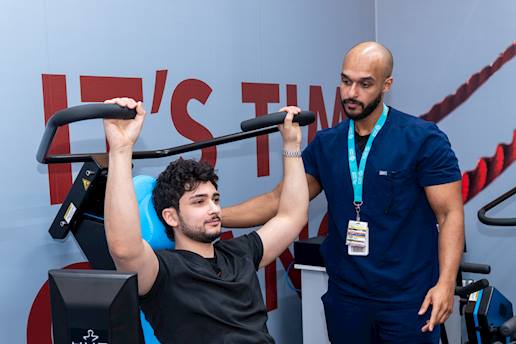
Physiotherapy is one of the most important allied medical specialties, aiming to restore mobility, improve health, and support recovery after injuries, surgeries, or chronic illnesses. It relies on evidence-based techniques, therapeutic exercises, and modern modalities to restore body functions and prevent complications.
Focuses on rehabilitation after fractures, bone or joint surgeries, sports injuries, and spine conditions.
Helps patients with stroke, spinal cord injuries, multiple sclerosis, or Parkinson’s disease to regain mobility, balance, and independence.
Designed to improve heart and lung function following surgeries or chronic illnesses, using breathing exercises and specialized rehabilitation programs.
Addresses conditions such as delayed motor development, cerebral palsy, or muscular and neurological disorders in children, supporting their growth and movement.
Covers postpartum rehabilitation, pregnancy-related conditions, and pelvic floor disorders.
Aims to improve balance, reduce the risk of falls, and help elderly patients maintain independence in daily activities.
Physiotherapy directly contributes to enhancing quality of life by:
Relieving pain without medication.
Restoring mobility and daily function.
Accelerating recovery after surgeries or injuries.
Improving strength, flexibility, and physical fitness.
Preventing chronic complications such as joint stiffness or muscle weakness.
Supporting mental health by promoting independence and confidence.
Physiotherapy itself is not painful, though some exercises may cause mild discomfort. This is normal as the body is being stimulated to regain strength and flexibility. Therapists ensure all exercises are performed safely and within tolerance.
The number of sessions depends on the patient’s condition and treatment plan. Some cases require only a few sessions, while chronic or complex cases may need a longer rehabilitation program.
In some cases, physiotherapy can reduce or delay the need for surgery, especially for joint or spine conditions. However, the final decision depends on the medical diagnosis.
Yes, physiotherapy is offered for children, adults, and elderly patients, with programs tailored to each age group and health condition.
Some patients notice improvement after the first few sessions, while others require a longer period depending on the condition and adherence to therapy.